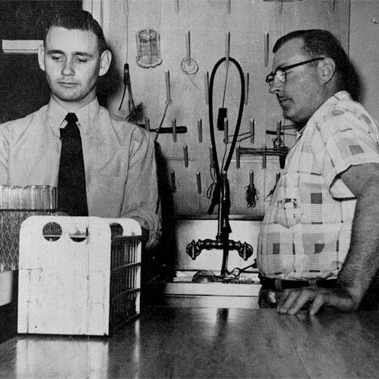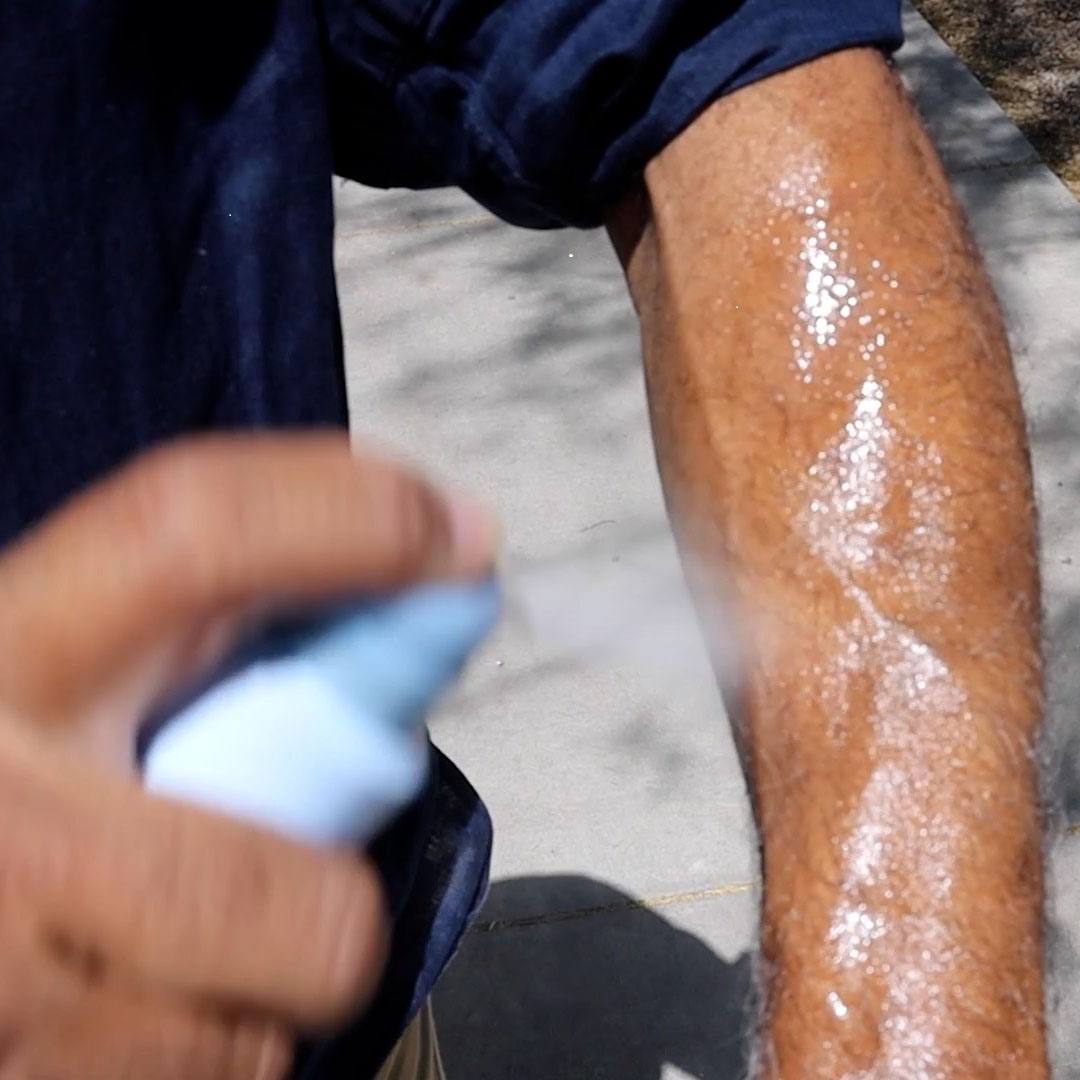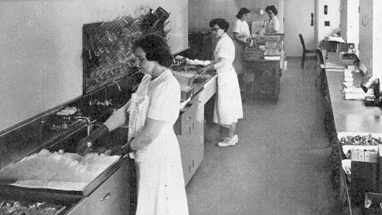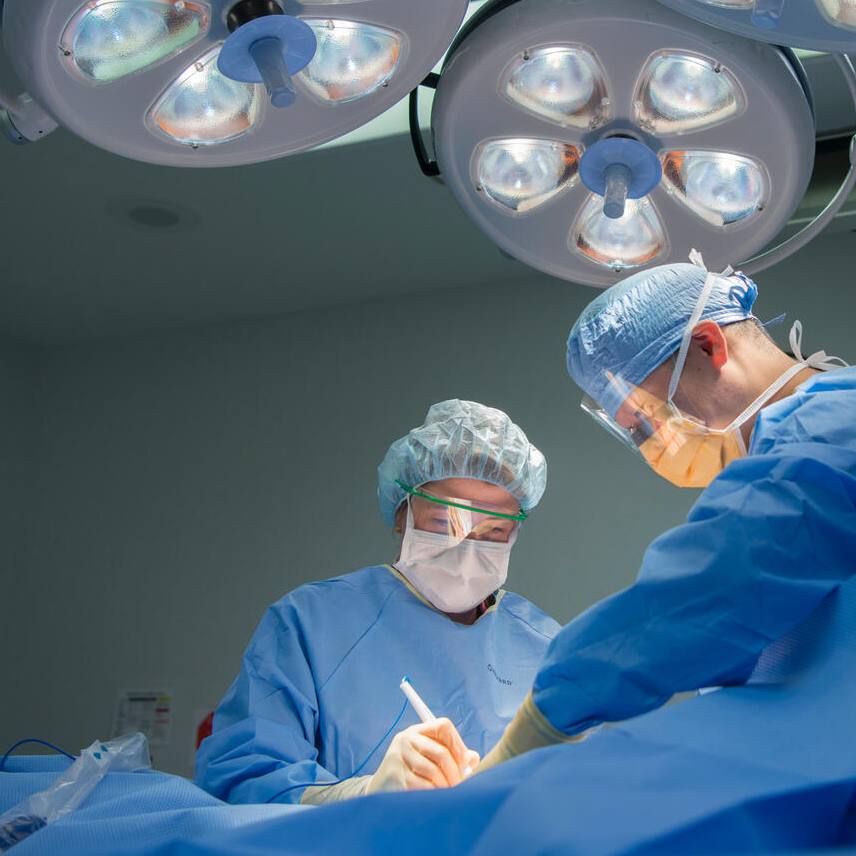-
Featured News
#ThrowbackThursday: Glassware Preparation Service Set Up in 1953
A new Clinic unit, the Laboratory Glassware Preparation Service, has recently been organized. It is headed by Ray Brown, formerly of the Stock Room.
“New” applies particularly to one function of the service—centralized ordering and storage of all glassware for laboratories of the Sections of Clinical Pathology, Biochemistry and Bacteriology. Glassware preparation for these laboratories is carried on much the same as in the past, with some specialization.
Glassware for the laboratories supplied by the new service is stored in the catacombed subway area that extends form the Stockroom to First Avenue. Here Ray attempts to keep on hand six months’ or a year’s supply of tubes, graduates, pipets, beakers, flasks, petri dishes and all the many other types of glassware used in the laboratories served.
New Ordering System
In the past each laboratory ordered, through the Purchasing Agent, most of the glassware needed from a laboratory supply house. Under the new system items needed are secured by requisition from central supply.
There are many advantages to this centralized ordering of glassware, says Dr. T. B. Magath. By making the stock available to all the laboratories it is possible to keep the “pipeline” smaller.
“For examples,” says Dr. Magath, “five different laboratories might, in the past, have kept on hand a supply of 5,000 tubes—that’s 25,000. But a central stock of say 10,000 or 5,000 tubes will probably be sufficient to keep all of these laboratories supplied.”
These figures point up another advantage of the new system. Instead of the new system. Instead of five laboratories placing orders at different times for a thousand, or two thousand tubes, one order for a much larger number—say 10,000—is placed by Ray Brown through Purchasing Agent Glen Southwick. There’s a considerable saving through discounts on such large orders.
Laboratories now keep on hand only the glassware currently in use since the stock in central supply room is immediately available to them. This cuts down on the need for storage space in the laboratories.
Important Operation
Glassware preparation for the laboratories is a large-scale and important operation.
Besides Ray, ten Clinic men and women are assigned to the service.
The unit on the fifth floor (1914 building) is supervised by Irene Reifsnider. Working with her are Mildred Munkholm, Lucille Kobi and Norma Hicks. Lucille Vorbeck collects and delivers glassware for Bacteriology and Clinical Pathology.
On the fourth floor (Biochemistry) the unit is staffed by Walter Bjork, James Smart and Fred Theel. Fred works half-days here and half-days at Medical Sciences for Dr. Bollmans’ Laboratory.
Glassware preparation at St. Marys is carried on by Milford Week (Biochemistry) and Chester Pfeifer (Clinical Pathology).
Hand Operation
Satisfactory glassware cleansing—with a few exceptions—is a hand operation. States Dr. Magath: “We’ve tried every mechanical device for glassware cleaning that’s been developed during the past thirty-five years. None has produced results that are up to the standards of our laboratories.”
Certainly, however, the glassware preparation rooms are equipped with every modern device which has proved efficient: stainless steel sinks, jet faucets, constant temperature detergent baths, huge drying ovens, automatic boilers, autoclaves.
Acid cleansing, greatly reduced since the development of new detergents, is carried out for all the laboratories in the fourth floor glass preparation unit. In general, however, the fifth floor unit serves Bacteriology and Clinical Pathology and the fourth floor unit Biochemistry. Glassware used in bacteriology is autoclaved before cleansing if there is any danger of infection in handling.
Clinic laboratories aim at—and achieve—a high degree of accuracy in the tests performed. Skilled technicians, high grade reagents and perfectly cleansed glassware, are essential factors in maintenance of these standards.
No Better Than Glassware
In chemical procedures this means chemical cleanliness; for many bacteriologic procedures, it means sterility. This is of such importance that a basic principal of laboratory operation is: “The accuracy of any test can be no better than the condition of the glassware used in its performance.”
States Dr. Magath: “The new coordinated service for glassware preparation and supply is working very satisfactorily. It will contribute in an important way to the efficient operation of our laboratories.”
Related Articles








